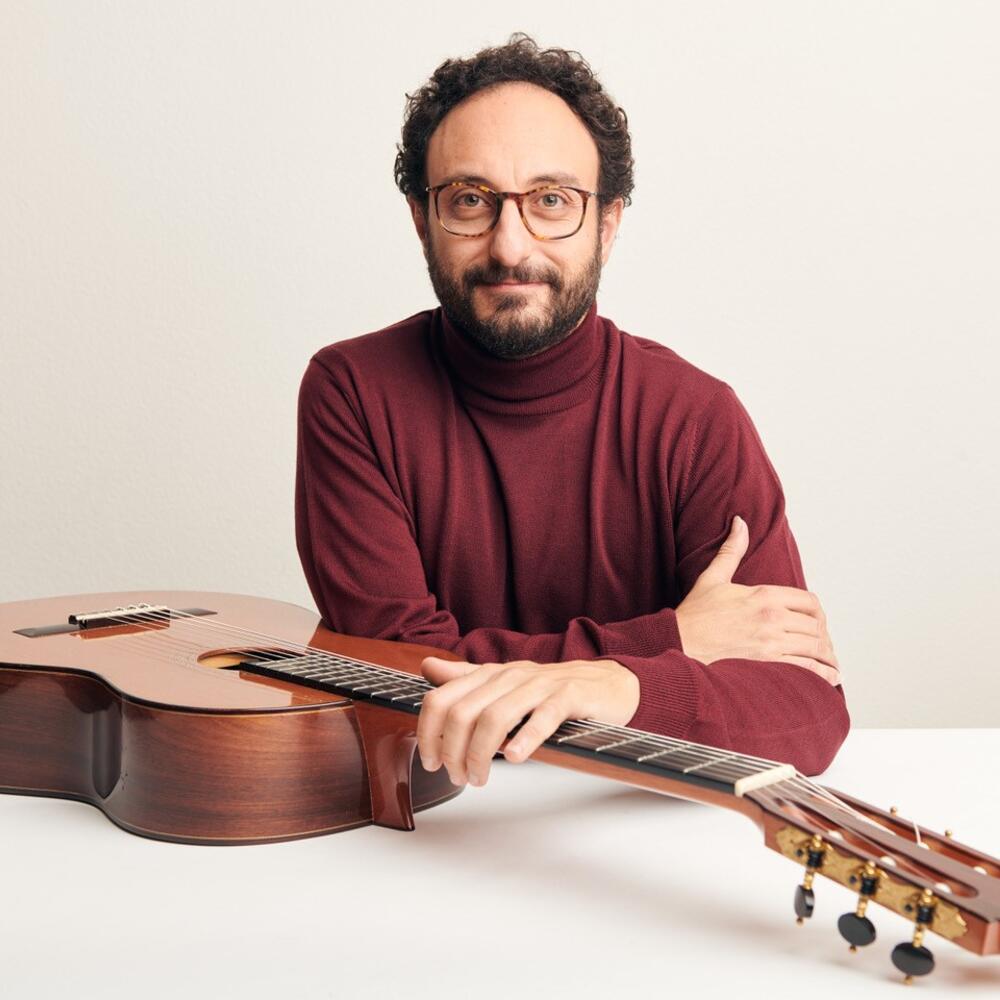
Giuseppe Feola, Italian-Swiss guitarist, studied at the Academy of Fine Arts in Rome, at the Conservatorio Alfredo Casella dell'Aquila and at the Hochschule für Musik Basel. He has won prizes at international competitions such as the Fernando Sor in Rome and the Tokyo Guitar Competition. In 2010, he recorded works by Isaac Albeniz for Brilliant Classics. Feola is a lecturer at the Hochschule für Musik Basel and from October 2024 professor at the Mozarteum University Salzburg. Fascinated by guitar making, he collaborates with various guitar makers to further develop the instrument.
Guitarist Giuseppe Feola was born in Rome in 1980. He studied guitar with Massimo Delle Cese at the Arts Academy in Rome and at the Alfredo Casella Conservatory in L'Aquila, where he graduated with Menzione d'Onore. A Swiss federal scholarship enabled him to continue his studies with Stephan Schmidt at the Hochschule für Musik Basel, where he graduated with honours in 2008. Giuseppe Feola has won prizes in international competitions such as the Fernando Sor Competition in Rome and the Tokyo Guitar Competition in Japan. In 2005, the Italian Minister for Art, Education, University and Research presented him with the Italian Art Prize Premio delle Arti.
Giuseppe Feola has performed at numerous theatres and festivals. These include the Teatro Argentina in Rome, the Baratelli Concert Society in Aquila, the Bunka Kaikan in Tokyo, the Auditorio Nacional de Música in Madrid, the Concert Hall of the Tchaikovsky Conservatory in Moscow, the Schleswig-Holstein Music Festival, the Chicago Guitar Festival and the Baldwin Wallace Guitar Festival in the USA, the Tirana Guitar Festival, the Polish Guitar Academy Festival and the Santa Cecilia GuitarFest of the Rome Conservatory of Music. In 2010, Feola recorded the Suite Española op. 47 and the Cantos de España op. 232 by Isaac Albeniz. The work was released on the Dutch label Brilliant Classics. Giuseppe Feola is a lecturer at the Hochschule für Musik in Basel and a professor at the Mozarteum University in Salzburg.
He is a passionate and meticulous pedagogue whose aim is to develop the specific potential of each student. His pedagogical approach is based on the search for a constant optimisation of the representational systems underlying music-making, which goes hand in hand with the development of technical-instrumental and stylistic skills. Fascinated by classical guitar making, he works with various luthiers and owns a small collection of instruments, including historical guitars by René Lacote 1830, Luis Panormo 1832 and Domingo Esteso 1926. He plays a modern guitar built for him by Matthias Dammann in 2020.